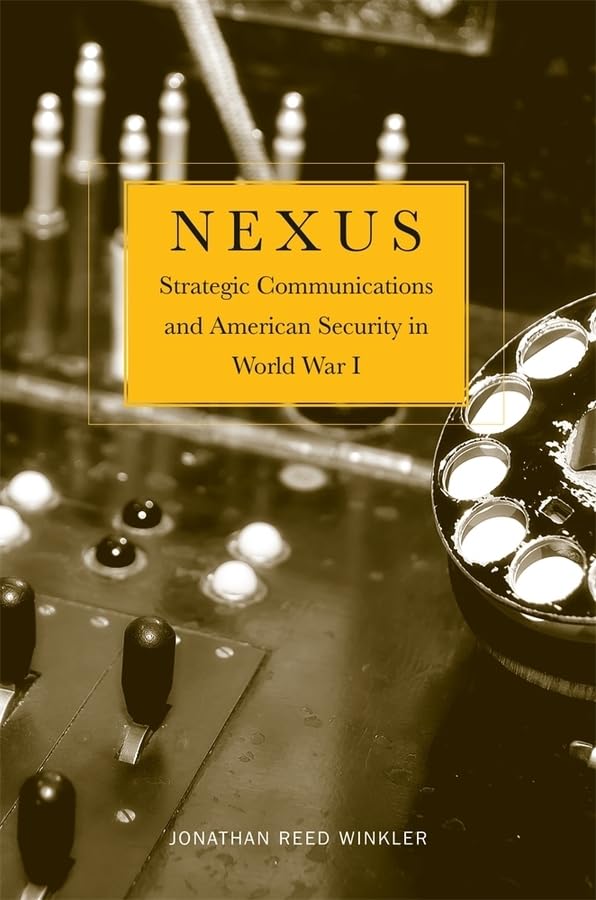

Nexus: Strategic Communications and American Security in World War I (Harvard Historical Studies)
T**D
A Groundbreaking History of Strategic Communications
Winkler's superb book is a contribution to strategic studies, and to business, technology, political, military, and diplomatic history. Part of its achievement, indeed, is to make it clear that, on their own, none of those fields can capture the reality of how the modern communications systems we use today grew and evolved.Thus, though complete on its own, it is also a prologue to a story that remains to be written, as well as a revelation of what transpired when a few key individuals realized that, if the U.S. was to be a world power, it needed reliable and secure communications. Though their efforts were not entirely in vain -- today's RCA is one of their legacies -- they were, by and large, unsuccessful.Indeed, the contrast between the purposeful British, French, and German integration of communications and strategy and the generally ill-coordinated American approach is one of Winkler's most interesting themes. The Progressives wanted -- frightening thought -- complete government control, though Congress was unsympathetic; business wanted to make money; every government department fought every other department and the US's allies as well; the national will was weak and focus was transient; and behind it all a sense of distinctly American individualism comes across. The result was that the few officials who had a sense of the whole were unable to translate their vision into reality.Another of Winkler's themes flows from the first. Histories of -- and especially popular commentaries on -- government/business relations tend to adopt a corporatist perspective, by arguing that everyone was on the same team -- and, too often, assuming it was a bad team because private enterprise was involved. Winkler's treatment of his subject is vastly more detailed and subtle than any previous effort, and it demonstrates that reality is complex. There are a few heroes here, but while there are a lot of less than fully comprehending actors, there are no villains: just people and institutions with different interests and ideas, who get along just about as well as one might expect.With this book, Winkler breaks important new ground, and not simply as a historian of US foreign relations, business, or the hidden workings of World War I. He defines a new subject of study: the integrated history of communications. That alone makes this a significant work. That it also contributes so much to our understanding of its era, and by implication ours, makes it a remarkable achievement.
Trustpilot
1 week ago
3 days ago